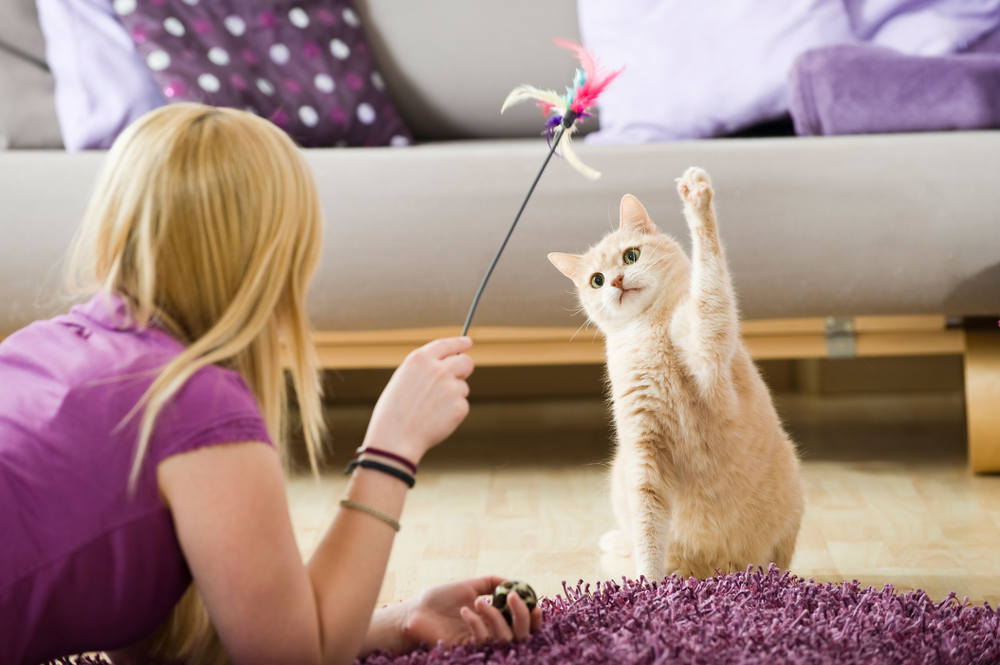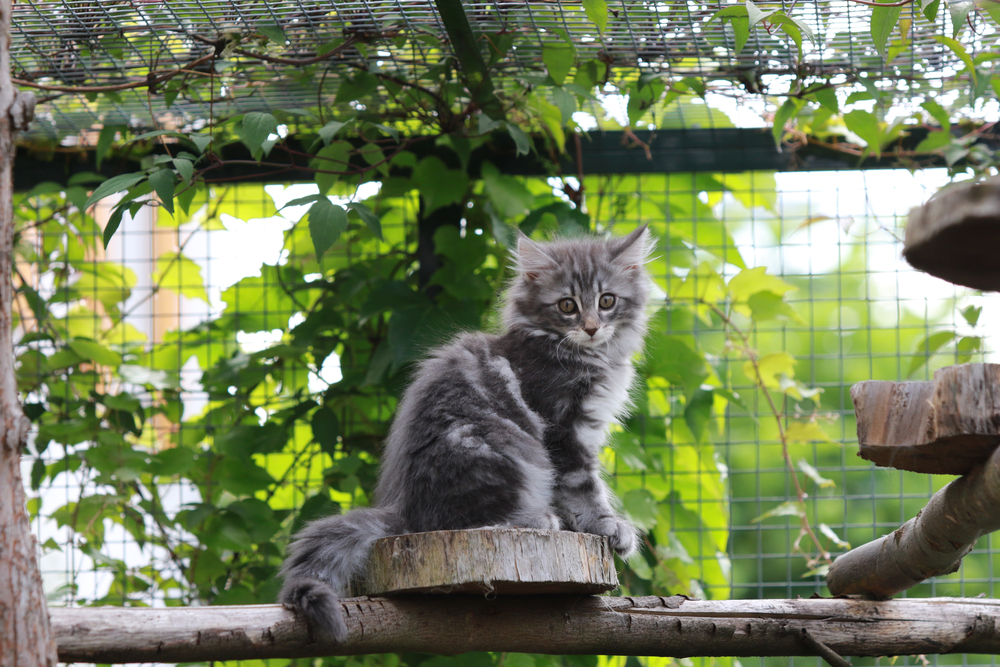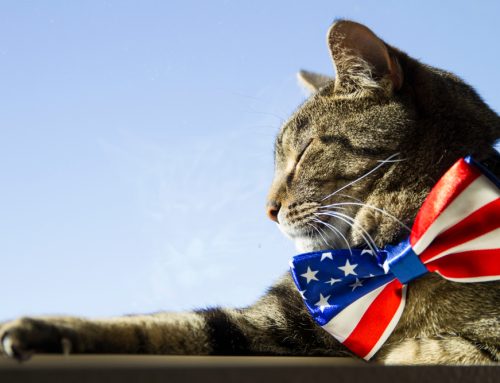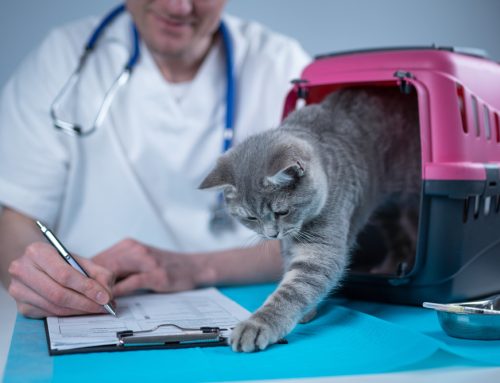Anyone who has loved a cat can attest that they retain their wildish nature. Cats are natural hunters, who once depended on this skill for their survival, and they also need to scratch, climb, and stalk prey. These cat behaviors can be endearing—unless they are scratching your good furniture—but they also serve a greater purpose in promoting physical and mental well-being and a better quality of life.
Our Veterinary Behavior Solutions team explores practical ways to help your indoor cat express their natural behaviors for their purr-fectly happy life.
Understanding your cat’s natural behaviors
Cats are obligate carnivores, meaning they rely primarily on meat in their diet. They are therefore born hunters and explorers, always seeking their next “prey” or exploring their environment. Domestic cats are a descendant of the species Felis sylvestris lybica, a wild cat known to roam Africa and the Middle East thousands of years ago. Today, despite how we indulge our pets, cats retain many of their predecessors’ innate traits. In the wild, cats spend a considerable amount of their day hunting, climbing, and marking territory. Indoor living suppresses these instincts, leading to boredom and behavioral issues. Recognizing your feline friend’s innate behaviors is the first step in providing adequate enrichment.
How to create a stimulating environment for your cat
Sure, your cat may never roam the savannah or hang out in a tree in an Ecuadorian jungle, but you can increase their interest in their surroundings. Use the following ideas to enrich your cat’s environment:
- Provide vertical spaces — Cats love to climb, but sometimes they climb on inappropriate things, like your curtains. Install shelves secured to the wall and provide a variety of cat trees and window perches to satisfy your kitty’s desire to survey their territory from above.
- Give your cat hunting opportunities — Stimulate your cat’s hunting instincts by providing interactive toys, games, and puzzle feeders. Catnip-filled mice are a special treat for felines and fulfill their desire to bat around an object. Additionally, hide some tasty treats around the house to encourage your cat to explore their terrain.
- Purchase scratching posts — Scratching is a natural behavior that allows cats to mark territory and maintain healthy claws. Offer a variety of scratching surfaces, such as posts, those that hang on door knobs, or flat-surface scratching pads, to keep their claws clean and tidy and prevent them from destroying the furniture.
- Allow your cat supervised outdoor time — Create a safe outdoor space or invest in a catio, an enclosure that can be moved around, to allow your cat to experience fresh air and sunshine safely. You can train your kitty to walk on a leash and harness by slowly acclimating them to the sensation and practicing indoors until they are ready for outdoor walking. Ensure you walk with your cat in the backyard or similar safe spot and avoid traffic, dogs, and other unsafe situations.
- Give your pet a room with a view — Place comfortable perches near windows where your cat can watch the world go by. Install bird or wildlife feeders in front of the window for extra interest and excitement. These additional stimuli will pique your cat’s curiosity and provide them with their own form of cat TV.
Quality time and exercise for your feline

Adding these cat items to your home is good, but spending time with your cat also is important for their mental well-being and to strengthen your bond. Dedicate daily time to engage in interactive play using toys such as feather wands and laser pointers that mimic their hunting instinct. Rotate your cat’s old toys with new ones to prevent boredom and entice play. Many cats enjoy new scenery, so consider adding pet-safe, non-toxic plants to their home area or a new cat tree.
Like dogs, cats need daily exercise for their health and happiness. Spend at least 30 minutes a day playing with them or safely walking them on a leash. Ensure your kitty is in excellent health and fully vaccinated against diseases before taking them outdoors. Your primary veterinarian can recommend the parasite preventives, vaccinations, and other medical needs for your four-legged friend.
Understand and cater to your indoor cat’s natural instincts to create a fulfilling environment that promotes their physical and mental well-being. Mental enrichment not only prevents boredom and behavior problems in your cat, but also encourages your cat’s natural behaviors, and strengthens your bond. However if your cat’s behavior is concerning despite your efforts, call us at Veterinary Behavior Solutions to schedule an appointment.







Leave A Comment